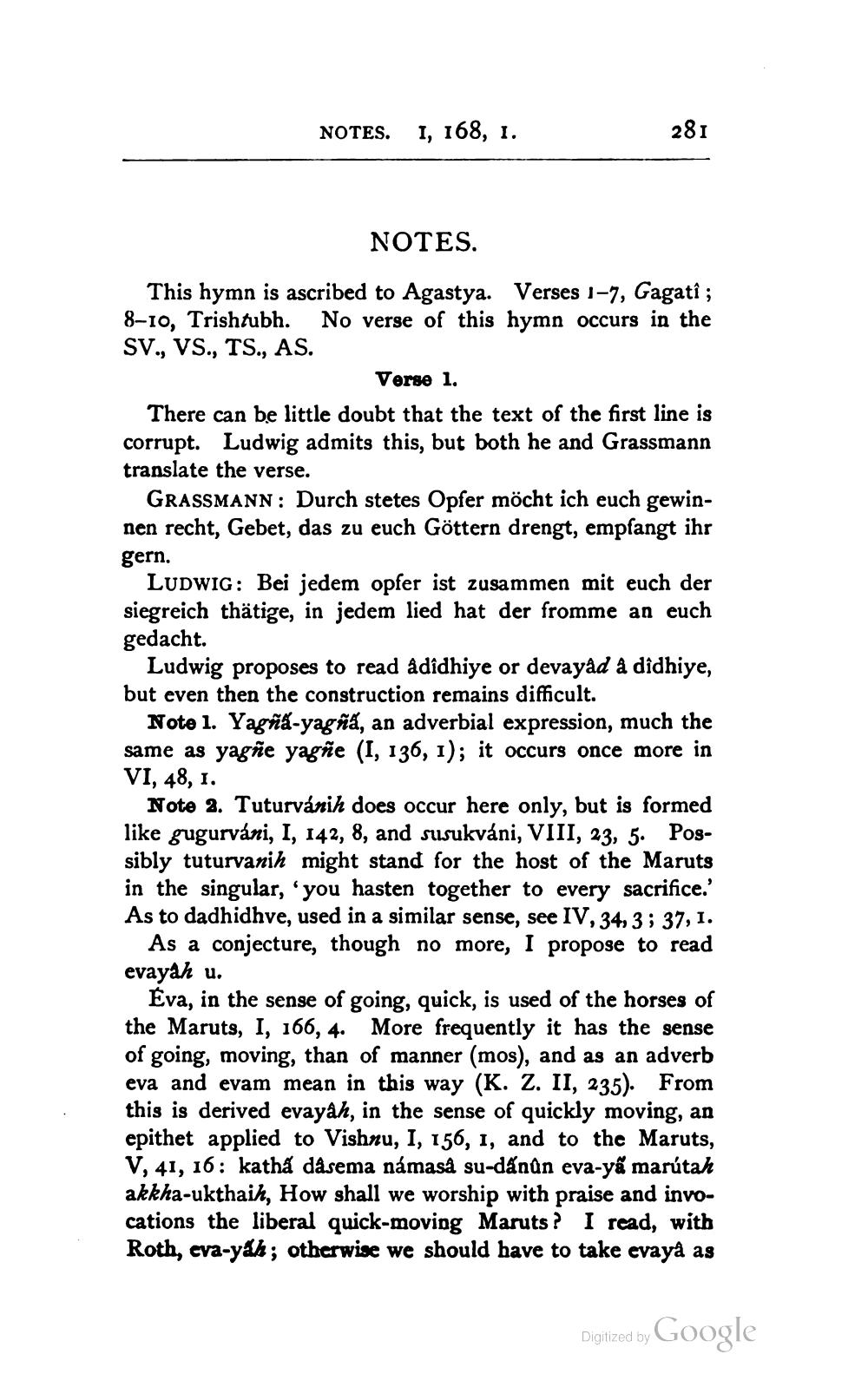________________
NOTES. I, 168, 1.
281
NOTES.
This hymn is ascribed to Agastya. Verses 1-7, Gagatî; 8-10, Trishtubh. No verse of this hymn occurs in the SV., VS., TS., AS.
Verse 1.
There can be little doubt that the text of the first line is corrupt. Ludwig admits this, but both he and Grassmann translate the verse.
GRASSMANN: Durch stetes Opfer möcht ich euch gewinnen recht, Gebet, das zu euch Göttern drengt, empfangt ihr gern.
LUDWIG: Bei jedem opfer ist zusammen mit euch der siegreich thätige, in jedem lied hat der fromme an euch gedacht.
Ludwig proposes to read âdîdhiye or devayâd à dîdhiye, but even then the construction remains difficult.
Note 1. Yagna-yagñã, an adverbial expression, much the same as yagne yagñe (I, 136, 1); it occurs once more in VI, 48, 1.
Note 2. Tuturvánik does occur here only, but is formed like gugurváni, I, 142, 8, and susukváni, VIII, 23, 5. Possibly tuturvanih might stand for the host of the Maruts in the singular, 'you hasten together to every sacrifice.' As to dadhidhve, used in a similar sense, see IV, 34, 3; 37, I. As a conjecture, though no more, I propose to read evayah u.
Éva, in the sense of going, quick, is used of the horses of the Maruts, I, 166, 4. More frequently it has the sense of going, moving, than of manner (mos), and as an adverb eva and evam mean in this way (K. Z. II, 235). From this is derived evayâh, in the sense of quickly moving, an epithet applied to Vishnu, I, 156, 1, and to the Maruts, V, 41, 16: kathấ dâsema námasâ su-dấnûn eva-ya marútah akkha-ukthaih, How shall we worship with praise and invocations the liberal quick-moving Maruts? I read, with Roth, eva-yah; otherwise we should have to take evaya as
Digitized by Google




